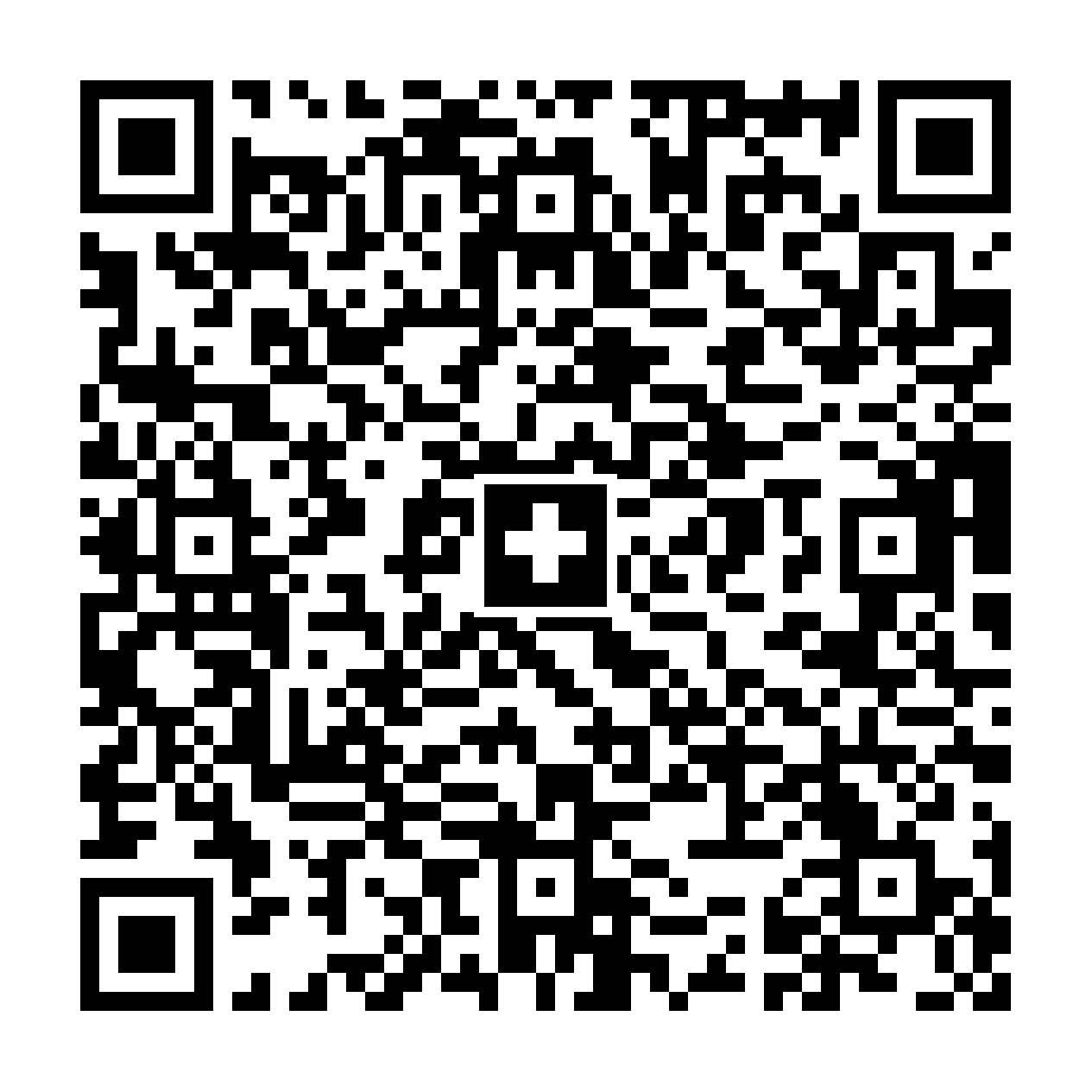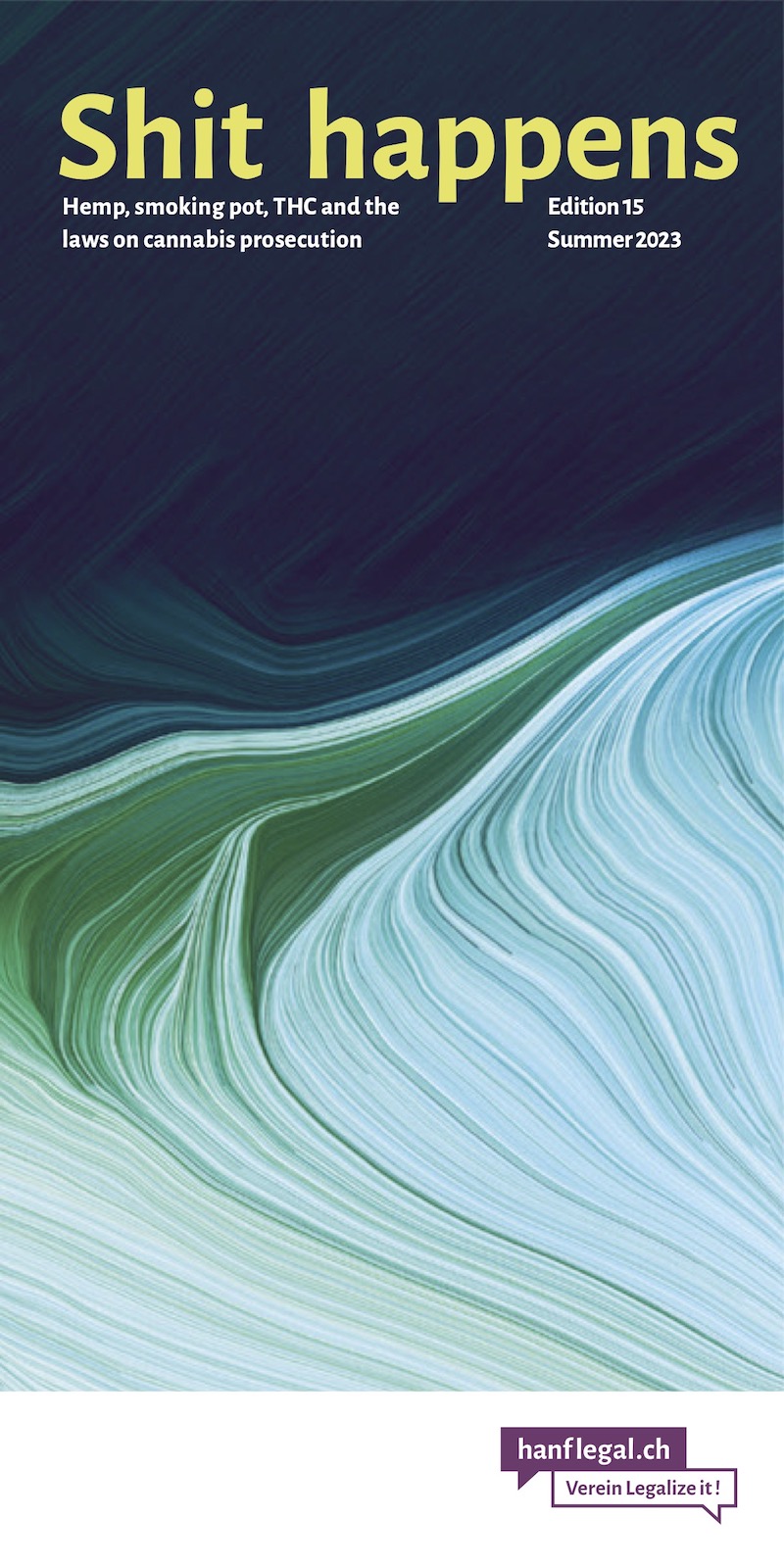- THC & Law:
Table of Contents
"CBD Hemp": Hemp flowers with less than 1% THC
Laws
Depending on the product, regulations apply to: foodstuffs, smoked products, medicinal products, chemicals or cosmetics. The cantons can issue further regulations. The NarcA does not cover hemp below 1% THC: its provisions only apply to hemp above 1% THC.
Conditions
Hemp flowers can only be legal if the THC level is below 1%. Otherwise, the strict prohibitions of the NarcA apply. There is no limit value for CBD. However, anyone who wants to sell hemp flowers below 1% THC in the retail trade must comply with the regulations for smoking products.
Tips
As with hemp foods, legal hemp flowers can also cause positive urine tests. Even traces of THC are sufficient for this. So if you have to give negative urine samples (to your employer or in traffic), you should not consume any products containing THC (and possibly test yourself).
Penalties
The consumption of hemp flowers < 1% THC is exempt from punishment. But such flowers look the same as the illegal ones. During police checks, you should have the original packaging with you and state that the flowers are legal. If you are fined, you must file an appeal.
"CBD Hemp": Hemp flowers with less than 1% THC
Not absolutely forbidden
A product is only an illegal narcotic if it contains more than 1% THC. What is below that is not covered by NarcA. What does this area of non-prohibited hemp look like? Depending on what a product is marketed as, different laws apply.
What is advertised as a medicine requires a license under the Therapeutic Products Act. If the products are intended for consumption, the Food Act applies.
There are also regulations for cosmetics, and there is also the Chemicals Law. We will not go into these areas in detail. If you are interested, you can find more information at IG Hemp.
A new product
As of 2016, hemp flowers with a very low THC content but a high CBD content came on the market more and more frequently. Cannabidiol (CBD) is one of the many cannabinoids in the hemp plant. When consumed, most feel little effect: most likely some sedation, but by no means a psychoactive effect as with THC-rich hemp varieties. CBD is not covered by NarcA, but there are still several other laws that need to be considered.
There have been and continue to be differing opinions as to which of our many laws apply here. One example of this is the assessment of whether or not CBD hemp flowers constitute tobacco substitutes.
Are CBD flowers tobacco substitutes?
At first, such blossoms were sold as raw materials, without any special intention of use. But then the customs administration came forward, declared such flowers as tobacco substitutes and demanded the tobacco tax due for them. Per kilogram, this costs 38 francs plus 25% of the retail price. So if 10 g are sold for 60 francs, a tax burden of 15.40 francs follows.
Millions in taxes wrongly collected
According to the state accounts of 2017 and 2018, 15 million francs such taxes were paid each, from which it can be concluded that the retail turnover is 60 million francs per year. The 2019 accounts no longer show this item. Perhaps they are embarrassed, because: In January 2020, the Federal Court found that the Directorate General of Customs was wrong. There is no legal basis for taxing hemp flowers as tobacco substitutes. Since then, this tax burden has ceased. The taxes that were wrongly levied have been refunded.
Supplement from March 2021
Unfortunately, the Federal Customs Administration has deleted the said page from its website without comment or redirection.
Original page as image (on 11/25/2020) from archive.org (retrieved on 3/19/2021).
Regulations for smoking products remain
However, picture warnings are still required, as on cigarette packets. The products must be reported to the FOPH, with submission of various documents.
⇒ Swissmedic and the Federal Offices of Public Health, Food Safety and Veterinary Affairs and Agriculture have jointly published a guideline, which is revised again and again: "Products with Cannabidiol (CBD), Overview and Enforcement Guide" of 19.12.2022 (5th version)“(Cannabis overview page from the FOPH).
⇒ The Federal Office for Agriculture has posted some documents on hemp: Overview page Hemp FOAG
A suspicion is enough
But if police or public prosecutor suspect that a hemp product might contain 1% THC or more, they are still allowed to open criminal proceedings. Especially with CBD flowers: They look the same as illegal hemp and also smoking CBD hemp smells the same as consuming illegal flowers. Only a measurement in the laboratory can then provide certainty about the THC content.
Such criminal proceedings because of legal hemp there were again and again. Consumers received fixed penalties or were reported because of taxed, legal weed. Only after an objection was remeasured, the material returned and a penalty waived. Such criminal proceedings are always tedious, as we will see on the following pages. It takes a long time and costs nerves, even if one is innocent.
In 2017, the first rapid tests were introduced by some police forces, which are supposed to be able to distinguish THC- from CBD-hemp right on the spot. Thus, there were fewer of these absurd criminal cases for legal CBD hemp.
Example of such a criminal case
Anyone who orders legal hemp seeds can therefore still face criminal proceedings: A person ordered 1,000 compoli-hemp seeds from France (this variety was listed on the variety list and is therefore completely legal). Customs opened the package and reported what they had found. The person concerned was arrested at his workplace and his protestations that it was legal hemp were not believed, although official delivery bills from the producer were enclosed. Finally, it took seven months until the public prosecutor closed the case. Then the person concerned had to fight for the refund of the seed…
A new market has emerged
Despite such risks, hundreds of companies have emerged that produce, process and distribute CBD hemp. Even the wholesalers and kiosks have quickly added cigarettes with CBD hemp to their assortment.
Since the fall of 2017, prices for CBD hemp have dropped after the first large harvests hit the market. This has caused difficulties for some of the new hemp companies. But this new, small market has held its own so far.
More about CBD hemp
Support our work with a donation:
Bank transfer
Account number (IBAN):
CH02 0900 0000 8709 1354 3
Full account details
Or scan this QR code with your eBanking App (ZKB, Revolut, Postfinance, …):

Or open/share the QR code as PDF file with your eBanking App.
Credit card
Donate via credit card
Verein Legalize it!
Quellenstrasse 25
8005 Zürich
Threema ID 7NH65RBY
Don’t miss anything! Follow us on social media:
